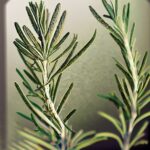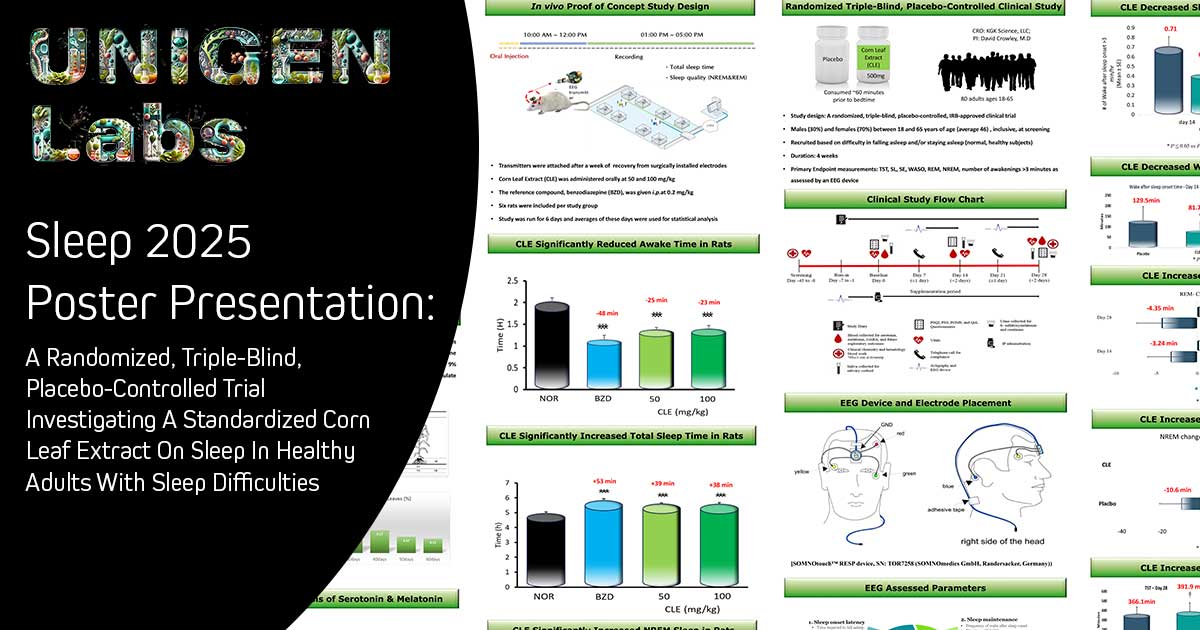It may be crowded, but the global immune health supplements market size is STILL projected to grow at a CAGR of 7.5% from 2022 to 2030. From DataIntelo’s published “Immune Health Supplements Market Research Report”, the key growth factors are:
- Increasing incidence of autoimmune diseases
- Growing awareness about the benefits of immune health supplements
- Rising prevalence of lifestyle-related disorders such as obesity and diabetes
- Growing demand for natural ingredient-based products
Projected growth aside, many industry experts agree that the immune market is currently saturated – lacking innovation or variety – and any new products entering this space need to stand out.
“It’s such a crowded category,” lamented Courtney Nichols Gould, co-CEO of SmartyPants. “And we always promised ourselves we would never make a ‘me too product. We want to add a product to the shelf and only release it if we truly believe our solution is better or unique in a way that solves a real problem for people.”

A Sea of Sameness: The Struggle for True Innovation in a Saturated Market
The bulk of immune support supplement products are comprised of slightly different variations of the same core ingredients. They may feature different potencies, combinations, or delivery formats, but most of the products holding space on the store shelves can be divided into just three main categories:
- Vitamins and Minerals: These are essential micronutrients that help maintain the immune system’s proper functioning. Some key vitamins and minerals related to immune health include:
- Vitamin C: Widely recognized for its immune-supporting properties, vitamin C is an antioxidant that helps protect cells from damage and supports the production of white blood cells.
- Vitamin D: It plays a crucial role in immune system regulation and has been linked to reduced risk of respiratory infections.
- Zinc: This mineral is essential for immune cell development and function, and even a mild deficiency can impair immune response.
- Herbal Supplements: These products use plant-based ingredients that have been traditionally associated with immune support. Some popular herbal supplements include:
- Echinacea: Known for its potential to stimulate the immune system, Echinacea has been used to prevent and treat upper respiratory infections.
- Elderberry: Rich in antioxidants and vitamins, elderberry has been used as a natural remedy for colds, flu, and sinus infections.
- Probiotics and Prebiotics: These supplements aim to support a healthy gut microbiome, which plays a critical role in immune system regulation. Probiotics are live microorganisms that confer health benefits when consumed, while prebiotics are dietary fibers that promote the growth of beneficial gut bacteria.
Researchandmarkets.com said that clinically proven formulas and scientific research will be the major differentiating factors – and companies that put science first will be key in standing out in the crowded category.
In recent years, adaptogens have emerged as a new category for immune support due to their potential benefits for overall health and their impact on the immune system.
- Adaptogens: Adaptogens are a class of natural substances that help the body adapt to stress and maintain homeostasis. Some adaptogens are believed to have immune-modulating properties. Examples include:
- Ashwagandha (Withania somnifera): This herb has been traditionally used in Ayurvedic medicine to support the immune system and reduce inflammation.
- Rhodiola (Rhodiola rosea): Rhodiola has been shown to exhibit immunostimulatory and antioxidant properties, helping to enhance the immune response.
- Astragalus: This adaptogenic herb has been used in traditional Chinese medicine to enhance immune function and reduce inflammation.
While adaptogens have gained popularity in the immune supplement space due to their potential to help the body resist stressors and maintain homeostasis, they also face a number of challenges, such as:
A Lack of Specificity
Adaptogens are generally thought to have broad-spectrum effects on the body, including stress reduction and immune support. However, their non-specific mechanisms of action may not address targeted immune system needs or provide a comprehensive solution for immune health that can easily (or legally) be put into words (or on a product label).
Defining and classifying adaptogens can be challenging, particularly when seeking specific attributes like reducing stress-induced damage and normalizing physiological functions. Adaptogens are intended to be a distinct category, separate from substances that modulate the immune system (immunomodulators) or enhance cognitive functions, such as memory and thinking (nootropics). However, numerous adaptogens have demonstrated immunomodulatory or nootropic properties. This has often resulted in the boundaries of the adaptogen classification becoming less distinct.
This ambiguity stems from the wide variety of substances considered to be adaptogens, and the multiple mechanisms of action through which they exert their effects. This lack of clarity and consistency in the classification and definition of these substances can often lead to regulatory challenges when trying to label or market adaptogenic supplements.
Formulation Challenges
Formulating adaptogens into supplements can be challenging due to various factors such as taste, color, and solubility:
- Taste: Many adaptogens have a distinct and often bitter taste, which can make them unpalatable to consumers. Overcoming the taste issue is a significant challenge when formulating adaptogen-based supplements.
- Color: Some adaptogens can impart strong colors to the final product, which may not be visually appealing or consistent with consumer expectations. This issue may necessitate the use of additional ingredients, processing techniques, or specialty manufacturing to achieve a desirable appearance.
- Solubility: The bioactive compounds in adaptogens, such as glycosides, phenolic compounds, and terpenoids, may have varying solubilities in water or other solvents. This can create challenges in achieving consistent dosing and absorption of the active ingredients.
- Stability and degradation: Some adaptogenic compounds may be sensitive to heat, light, or moisture, leading to degradation or reduced potency during processing, storage, or in the final product. Ensuring the stability and efficacy of adaptogens in supplements requires careful formulation and manufacturing practices.
Overcoming these formulation challenges can incur additional time and cost.
So, while adaptogens certainly offer many potential benefits for stress reduction and immune support, their formulation and regulatory challenges, ambiguity with classification, and competition with established ingredients may hinder their ability to provide significant innovation in the immune supplement space.
To overcome these challenges, researchers and manufacturers must employ innovative formulation strategies, such as new and novel encapsulation techniques, taste-masking agents, or the use of other synergistic ingredients to enhance the palatability, appearance, solubility, and stability of adaptogen-based supplements.
They have also had to push a little further ahead – or maybe a little further back, would be more accurate – to find unique or better ingredients that cater to the ongoing demand for human immune support.

Advancing Immune Support: The Power of Mushroom Extracts and Blends
It’s been almost 100 years since Alexander Fleming discovered penicillin. When an uncovered Petri dish sitting next to an open window became contaminated with mold spores, Fleming observed that the bacteria in proximity to the mold colonies were dying… and the rest, as they say, is history. It’s been thousands of years, though, that mushrooms have been used as medicine in Asia, and a growing number of countries, including the US, have started to embrace the use of mushrooms as medicine in recent years, contributing to a multibillion-dollar market.
Individual mushroom species have unique functional properties that work with our bodies to do things such as support immunity, boost energy, help with cognitive health, provide anti-inflammatory properties, support mood, and more. While many species of mushrooms DO function as adaptogens, they also offer some unique properties that contribute to immune health. Consumers are fully aware of these important health benefits, as is evidenced by the multitude of Google and Amazon searches. Searches for “mushrooms for immune support” often pull up results for chaga, shiitake, or reishi mushrooms – with no surprise. According to SPINS data on the 52 weeks ending November 29, 2020, “mushrooms (other)” grew 53.8% to become the top-selling ingredient in the natural channel’s immune-health category.
Powerful Polysaccharides
Even Otzi the Ice Man, thought to have lived around 3300 BC, relied on the powerful benefits of mushrooms. When he was discovered frozen in the ice, he had been carrying mushrooms – one of them known for its anti-parasitic, anti-inflammatory, and antibiotic properties. (Otzi was found to have whipworm and arthritis, so likely was using the mushroom for one or both of those conditions.)
Functional mushrooms are comprised of powerful polysaccharides, thought to be some of the most versatile and beneficial compounds for reducing inflammation and supporting a healthy immune response. One of the most important of these key compounds is called beta-glucans. Beta-glucans have been extensively studied for their immunomodulatory properties, and can stimulate the activity of immune cells, such as macrophages, neutrophils, and natural killer cells, enhancing the body’s defense against pathogens. Beta-glucans occur naturally in the cell walls of functional mushrooms and account for the primary immune-modulating effects these mushrooms provide.
Through these polysaccharides and other phytochemicals (such as triterpenoids, fatty acids, sterols, and enzymes), medicinal mushrooms have proven their ability to impact the immune response, helping to stimulate it in a time of need, while also helping to calm or re-balance an overactive immune response. Due to their large molecular weight, however, mushroom polysaccharides are unable to infiltrate immune cells and activate them directly. Because of this, they have to attach to cell receptors instead.
The amount, and length, of short-branched chains in mushroom polysaccharides may have a significant influence on their bioactivity in the immune system. It is thought that branched polysaccharides might be more effective for immune support because their complex structure allows them to interact better with immune cells. Their branches create more contact points for immune cells, which helps to activate and strengthen the immune response. This gently enhances the body’s readiness to fend off infections and contributes to the maintenance of overall well-being by supporting a robust immune response. Therefore, the effectiveness of mushroom polysaccharides is often influenced or determined by their affinity for immune cell receptors.
Nature’s Immune Allies: The Varied and Potent Benefits of Medicinal Mushrooms
Certain types of mushrooms have been used for their immune-supporting properties, due to the presence of bioactive compounds like polysaccharides, glycoproteins, and triterpenoids. Some popular medicinal mushrooms include:
- Reishi – Reishi mushrooms are known for their immunomodulatory properties, which can help enhance immune responses and maintain overall immune system balance.
- Shiitake – Shiitake mushrooms contain bioactive compounds like lentinan, which may help modulate the immune system and exhibit anti-inflammatory effects.
- Turkey Tail – Turkey tail mushrooms contain polysaccharides, like PSK and PSP, which have been shown to stimulate the immune system and may have potential anti-cancer properties.
- Cordyceps – Cordyceps mushrooms have been used in traditional medicine for their potential immune-enhancing and anti-inflammatory properties.
- Chaga – Chaga mushrooms have been used in traditional medicine for centuries. Chaga is known for its potential immune-boosting properties, mainly due to its high content of beta-glucans, which can help support the immune system by modulating its response to infections and other challenges.
- Poria Cocos – Poria cocos is a fungus that has been used in traditional Chinese medicine for centuries. It is believed to have numerous health benefits, including improving immunity. Studies have shown that poria cocos can influence immune cells like macrophages, natural killer cells, and T cells, helping the body to defend against infections and diseases, and to reduce inflammation by suppressing the production of inflammatory molecules like nitric oxide and cytokines.
All of these mushrooms have been widely used in traditional medicine systems, and ongoing research continues to investigate their potential health benefits. Even mushrooms, however, might not be the best we can do when it comes to immune support supplements.

The Power of Polysaccharides and Polyphenols: A Winning Combination for Immune Support
Polyphenols are a group of naturally-occurring compounds found in plants, such as fruits, vegetables, tea, and wine. They have a variety of health benefits, including immune support, due to their potent antioxidant and anti-inflammatory properties.
A blend of polysaccharides and polyphenols can be especially beneficial for immune support due to their synergistic effects and the different ways in which they contribute to immune system function. Here are some reasons why this combination might be advantageous:
- Immunomodulation: Polysaccharides, such as beta-glucans found in mushrooms, can modulate the immune system by activating various immune cells like macrophages, natural killer cells, and T cells. This activation enhances the body’s defense mechanisms against pathogens.
- Antioxidant properties: Polyphenols, as mentioned above, are known for their potent antioxidant properties. Antioxidants help neutralize free radicals, reducing oxidative stress and inflammation, which in turn supports overall immune function.
- Anti-inflammatory effects: Both polysaccharides and polyphenols have been shown to possess anti-inflammatory properties. By reducing inflammation, they can help maintain a balanced immune response and prevent overactivation, which could otherwise lead to chronic inflammation and related health issues.
- Synergistic effects: The combination of various bioactive compounds, like polysaccharides and polyphenols, may work together to enhance immune function. This synergistic effect can lead to a more comprehensive and effective approach to immune support compared to using a single ingredient.
By combining polysaccharides and polyphenols, a supplement can leverage the unique benefits of each class of compounds, potentially providing more effective and comprehensive immune support.

Unlocking the Potential of Branded Ingredients for Superior Immune Support
In addition to combining specific compounds with proven immune-support properties, however, the use of branded ingredients can provide an extra advantage.
Branded ingredients are proprietary ingredients that are often backed by research and have a unique identity or selling proposition. They are typically manufactured by a single supplier and have a specific level of quality and purity. Branded ingredients often have a trademarked or patented name, and they may be supported by clinical studies that demonstrate their efficacy.
Branded ingredients are often considered to be superior to commodity ingredients for several reasons:
- Standardization: Branded ingredients are often standardized to ensure consistency from batch to batch, which can help ensure their safety and effectiveness.
- Quality Control: Branded ingredients are typically subject to more rigorous quality control measures than commodity ingredients, which can help ensure their purity and potency.
- Research: Branded ingredients are often supported by clinical studies that demonstrate their safety and effectiveness. This can provide consumers with confidence in the product’s efficacy.
- Marketing: Branded ingredients often have a unique selling proposition and may be marketed as superior to other ingredients in their category. This can help differentiate a product and build brand loyalty.

Using our Proprietary Scientific Technology to Create the Next Generation in Mushroom-Based Immune Support
In developing our next-generation immune support ingredient Symetrian™, we used our PhytoLogix™ platform to sift through our library of more than 15,000 plant extracts and 300,000 high throughput fractions to find a combination of active compounds that would work even better than any one of them alone.
We found that the combination of the Poria cocos mushroom as a main ingredient, with the highly immunoactive “Modified Aloe Polysaccharides” (MAP) aloe vera and beneficial polyphenols from Rosmarinus officinalis (Rosemary) to be the most potent blend out of the many we evaluated.
Poria Cocos

Poria cocos, also known as “Fu Ling”, is widely acknowledged as having significant immune-boosting properties. Poria cocos has been used in traditional Chinese medicine to treat various diseases due to its immunomodulatory and anti-inflammatory effects. Its main active ingredients include triterpenoids, polysaccharides, and lectins, which can help boost the immune system and reduce inflammation. Studies have demonstrated that these components can enhance immune responses and suppress inflammation through various mechanisms.
Pharmacological studies reveal that polysaccharides are the most abundant substance in Poria cocos, but additionally, they are the more complex branched-chain type of polysaccharides as mentioned above that may provide increased efficacy. Here are some particular advantages of polysaccharides in supporting immune health, as supported by scientific studies:
- Immunomodulatory effects: Poria cocos contains bioactive compounds, such as polysaccharides, which have been shown to exhibit immunomodulatory properties. These polysaccharides can stimulate macrophage activation, enhance natural killer cell activity, and increase the production of cytokines.
- Anti-inflammatory effects: Poria cocos extracts have demonstrated anti-inflammatory properties by inhibiting the production of pro-inflammatory mediators, such as nitric oxide, prostaglandin E2, and various cytokines. This anti-inflammatory action can help support the immune system and maintain overall health.
- Antitumor activity: Some studies have reported that Poria cocos extracts exhibit antitumor activity, which may be partially attributed to the activation of immune cells, such as macrophages, natural killer cells, and T cells. This activation can enhance the immune system’s ability to target and eliminate cancer cells.
Aloe

Modified Aloe Polysaccharides (MAP) are bioactive compounds derived from the Aloe vera plant, specifically from the inner leaf gel. Aloe vera is well-known for its various health benefits and has been used in traditional medicine for centuries. Polysaccharides are one of the main biologically active components found in Aloe vera gel.
Modified Aloe Polysaccharides are processed and concentrated forms of these naturally occurring polysaccharides. They are extracted and purified to enhance their potential health benefits, such as immune support, anti-inflammatory effects, and wound healing properties.
Several studies have investigated the immune-modulating effects of Modified Aloe Polysaccharides, demonstrating their potential to enhance immune response, exert anti-inflammatory properties, and improve overall immune system function. Here are some specific benefits of aloe polysaccharides for immune support, backed by scientific research:
- Immunomodulatory effects: Aloe polysaccharides have been found to exhibit immunomodulatory properties, influencing various aspects of the immune system, such as macrophage activation, cytokine production, and antibody response.
- Anti-inflammatory effects: Aloe polysaccharides have demonstrated anti-inflammatory properties, helping to reduce inflammation and support immune function. The suppression of pro-inflammatory cytokines and the stimulation of anti-inflammatory cytokines play a role in these effects.
- Wound healing properties: Aloe polysaccharides have been reported to promote wound healing, which is an essential aspect of immune function. They can stimulate fibroblast proliferation, collagen synthesis, and angiogenesis, contributing to tissue repair and recovery.
Rosmarinus officinalis

Rosmarinus officinalis, commonly known as rosemary, is a perennial herb that belongs to the mint family. It has been traditionally used for various medicinal purposes, including immune support. Some of the benefits of rosemary for immune support are attributed to its antioxidant, anti-inflammatory, and antimicrobial properties:
- Antioxidant properties: Rosemary contains phenolic compounds, such as carnosic acid and rosmarinic acid, which exhibit antioxidant activity. Antioxidants help protect cells from damage caused by free radicals and oxidative stress, thereby contributing to overall immune health.
- Anti-inflammatory properties: Rosemary has been shown to possess anti-inflammatory effects, which can help modulate the immune system and prevent excessive inflammation. This can be beneficial in supporting immune function and maintaining overall health.
- Antimicrobial properties: Rosemary essential oil and its components, such as 1,8-cineole, α-pinene, and camphor, have demonstrated antimicrobial activity against various pathogens. This antimicrobial property can help support the immune system in fighting off infections.
Each of the individual compounds in Symetrian™ is standardized for specific polysaccharides and polyphenols – ensuring that consumers receive a safe and effective product that consistently delivers optimal immune support benefits with every dose.
Did You Know?
Allergies are caused by the immune system overreacting to certain substances in the environment. This study found that an extract from P. cocos can help balance the immune response by reducing the production of IL-4 and IL-5, which are known to cause allergic reactions. By regulating the Th1/Th2 immune response, the extract may help reduce the occurrence of allergic diseases and could be a potential treatment option for allergies.

Spotlight on Symetrian™ – The Next Generation Immune Support Ingredient
Symetrian™ (coded as UP360) is a naturally-derived health and wellness ingredient developed by Unigen Inc.
This proprietary composition made from Poria cocos mushroom, rosemary, and aloe vera is the only immune ingredient available commercially that is clinically proven to selectively increase TCRγδ+ Gamma delta T cells (also known as the “first line of T cell defense”).
Clinically shown to activate innate immunity within 1 hour, and adaptive immunity within 3 hours, each of the ingredients featured in Symetrian™ has a long history of safe human consumption for immune support without any side effects.
Supplementation with Symetrian™ enhanced immune defense and boosted antioxidant activity when used alongside conventional vaccines, adopted by many as part of their overall immune health strategy. The randomized, triple-blind, placebo-controlled clinical trial involving UP360 supplementation demonstrated a strong, healthy immune response in adults after receiving the flu vaccine. These clinical findings have recently been published in Frontiers in Nutrition.
Symetrian™ can be formulated into multiple delivery formats with minimal taste, color, odor, or stability issues. Also, because it is a branded ingredient, there are multiple, straightforward studies available to support its use for immune health.
Unigen’s Symetrian™ stands out in the crowded immune support market due to its unique formulation, standardization for specific polysaccharides and polyphenols, and commitment to scientific validation. This novel ingredient offers an exciting and clinically-validated new option for consumers seeking reliable and effective immune support supplements.



